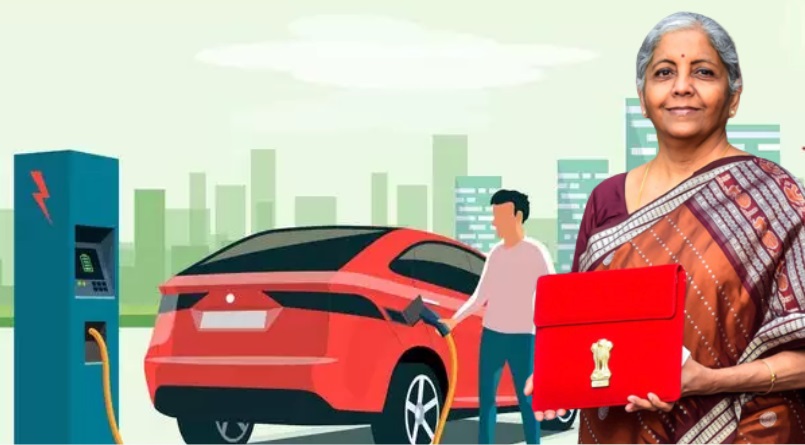Union Budget 2022, which was presented on Tuesday by the Union Finance Minister Nirmala Sitharaman had so much to offer. From regulating crypto to launching the digital rupee, the Union budget is all that India needed at this point in time.
Since India is witnessing a revolution in the EV sector, Nirmala Sitharaman stepped in with another positive news to aid the EV ecosystem. The finance minister stated that a special policy for battery swapping for EVs will be announced.
EV brands will have to follow interoperability standards
Sitharaman told that “interoperability standards will be formulated.” This means that EV brands will have to abide by the uniform standard for EV batteries. She also noted that “Urban planning will also include the setting up of more public charging stations.”
The finance minister further noted that the battery swapping policy will be introduced in view of the space restrictions in urban areas for the setting up of charging stations at scale. Under the new policy, a private EV owner can exchange a depleted battery for a fully charged one. The EV owner will not have to wait for the battery to charge up sufficiently.
EV makers will have to manufacture EVs with standardised, removable/disposable batteries. It will also reduce the cost of EV ownership as there will be no need to buy a new battery. Notably, the most expensive component of an EV is its battery.
It is pertinent to note that electric two-wheeler manufacturers like Hero Electric, Okinawa Motors, Simple Energy and Bounce Electric offer battery swapping. On the contrary, Ather Energy, Ola Electric, Tork Motors etc. possess non-removable batteries.
EV experts welcomed the decision
Soon after the battery swapping policy was announced, VS Motor Company chairman Venu Srinivasan asserted, “We strongly support the measures to promote clean and green mobility, mainly introducing the battery-swapping policy, which will be instrumental in supporting an efficient EV ecosystem.”
While Venu claimed that the policy will support an efficient EV ecosystem, Naveen Munjal MD, Hero Electric is of the opinion that it will be an asset to the evolving EV ecosystem across the country
Naveen stated, “Hero Electric has always been a strong advocate of standardisation of EV battery packs to accelerate EV adoption. Interoperability standards will help address range anxiety issues and battery swapping stations will be an asset to the evolving EV ecosystem across the country.”
India’s massive growth in the EV sector
Recently, India has upscaled its adoption of Electric Vehicles. Indian government’s support has played a key role in the promotion of the electric vehicle sector in India. Currently, the Modi government is providing an incentive of Rs 26,058 crore to electric vehicles under the PLI scheme. PLI along with other subsidized schemes have resulted in an average customer paying 80 paise for riding 1 kilometre in an electric vehicle. To put it in perspective, a diesel vehicle costs Rs 4 per km for consumers.
The government is also ensuring that the development of the EV sector benefits as many Indians as it can. Make-in-India is becoming a key pillar for the EV sector. Even foreign companies like BMW are now collaborating with India’s TVS for electric vehicle production in India.
Earlier as reported by TFI, Niti Aayog, the brainchild of the Modi government had proposed to include electric vehicles in priority sector lending guidelines of RBI.
Notably, the battery swapping policy is being introduced to deal with the infrastructure problems and the government needs to be applauded for this.
